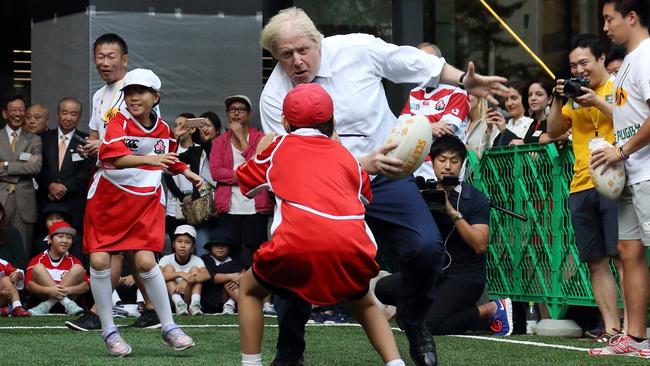
So, far too early, the Super Rugby season is upon us.
Rugby lovers share a sense of heightened anticipation, as to what new faces and new talent will emerge.
Mentioning some of those players may put undue pressure on them; so, suffice to say, in the pivotal jersey of No 10, the Waratahs have chosen Will Harrison, a gifted young ballplayer who gets the gig ahead of Ben Donaldson and Mack Mason.
Young Donaldson is a legitimate contender for the spot.
But, extremely relevant as to who develops and who falls by the wayside is, always, management.
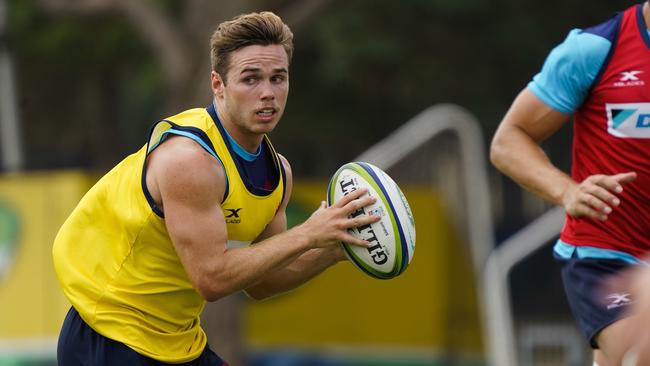
I wrote last week about the Waratahs’ general manager Tim Rapp. I expressed real concerns about his role, his capacity and his judgment.
I write, as I do, so that the inadequacies of our administrators will not inhibit the development of talent nor, just as importantly, will they stifle the necessary momentum for change.
If we do this year what we did last year, we will get last year’s result. Without change, this wonderful game will continue to underperform and fail to fulfil its remarkable potential.
We are currently struggling on every front, most importantly on results and the consequence of this failure, income.
History shows that when our administrators and coaches get it right, we produce world-class players and world-class teams.
My criticisms have been trenchant, but I hope constructive, and a beneficial instrument to force urgently needed change, at the very top.
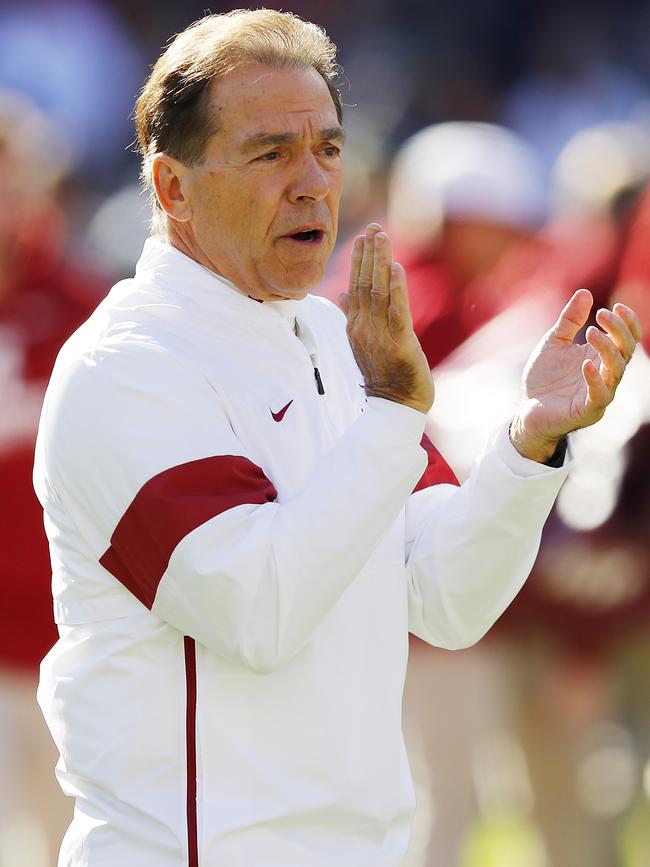
Nick Saban, the Alabama Crimson Tide head coach, and the most successful American college football coach of all time, once said: “Mediocre people don’t like high achievers and high achievers don’t like mediocre people.”
I am sure Cameron Clyne, Raelene Castle, Scott Johnson and Tim Rapp do not take kindly to the flaws in their administration that I feel compelled to share with you.
But I am not going to remain silent while the current administration drags this proud rugby nation into the status of also-rans.
The message from people like Saban is simple — we need to get rid of the mediocre administrators before our teams can rise above the mediocre.
Clyne must not be allowed to run around town looking for flunkeys to fill his new Rugby Australia board.
It would be beyond absurd that a mediocre outgoing chairman would usurp the power to name his replacement and appoint all new board members to boot.
We need the Boris Johnson model, where the people are heard.
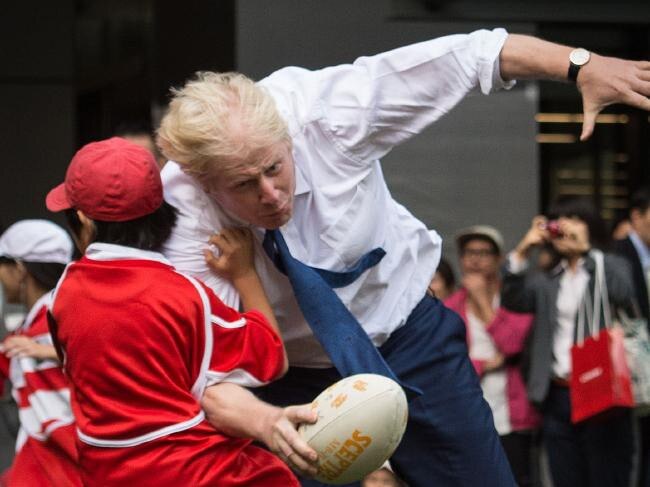
If you want to be a winner in anything in life, absorb the lessons of those who win.
South Africa’s World Cup-winning captain, Siya Kolisi, came from very humble beginnings. He shared this reality during his World Cup triumph last year in Japan.
He recently acknowledged the support of a man, Vincent Mai. He paid for Siya’s life-altering scholarship to attend the famous Grey High School in Port Elizabeth.
Kolisi recently wrote, “Vincent is a fellow Grey boy and has invested bursaries in hundreds of kids in South Africa, the majority of the time without ever meeting them … I was one of those kids and without his help I wouldn’t be where I am today … he sowed into my life without knowing what would come from it and I couldn’t be more grateful.”
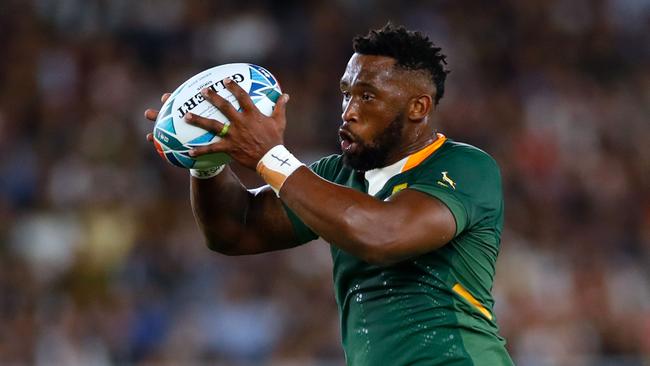
The story is relevant to Australian rugby if we are to climb out of the pit into which we have fallen.
There are generous philanthropists in this country. Many of them love rugby. Others would know nothing about rugby, but believe passionately in giving talent a voice.
Others, as we have seen with the bushfires, simply believe it is ennobling to give where the need is urgent. Our schools are a production line for rugby union players, but only if the product is attractive to young boys and girls.
The public perception of rugby being a harbour for losers and inefficient administrators does not appeal to ambitious and gifted young athletes.
If we had rugby leaders of commitment, capacity and persuasion, they would be meeting with school principals to discuss the development of philanthropic rugby programs to advance the education and sporting talents of young people who otherwise would not be able to enjoy such opportunities.
There are already bursaries and scholarships in academia, music and sport funded by outfits like parent bodies and old boys.
The program that advanced Kolisi was funded by a philanthropist. He happened to be an old boy of the same school.
SUBSCRIBE TO KAYO: Watch every match of the 2020 Vodafone Super Rugby Season LIVE & On-Demand on KAYO. New to Kayo? Get your 14-day free trial & start streaming instantly >
The model has unchallengeable merit; which brings us back to administration.
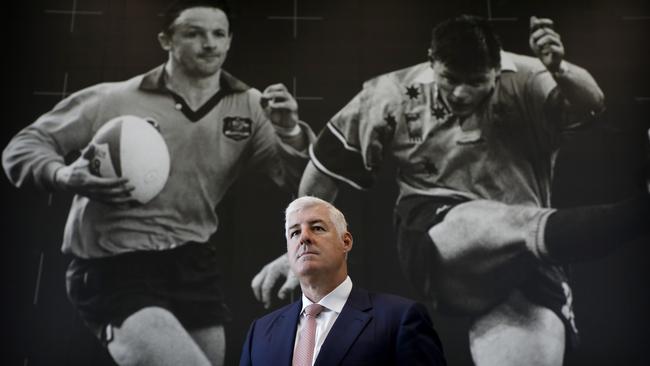
When Clyne was appointed as chairman of Rugby Australia, most people assumed the former banker would be able to open the pockets of the rugby loving big end of town.
What a misconception this has proven to be.
One of the first things Clyne did was to cut the Western Force and turn his back on one of Australia’s most generous philanthropists, Andrew Forrest — the same Mr Forrest who has just given $70 million to repairing the devastation of the bushfires; the same Mr Forrest who offered Rugby Australia a $50 million dollar assistance package to save the Force only to be shown the door.
This must surely make Clyne one of the worst chairmen in our game’s remarkable history. The former banker has flattered to deceive, except that those who know can spot mediocrity from a mile off.
There are good people who could replace him and reshape our board, who have a vision and exciting ideas as to how to fix Australian rugby.
If we are short of money, as we are, call upon the philanthropic instincts of people who love the game, who want to give to the prospering of talent, but won’t while they remain disillusioned and disenchanted with the current administration.
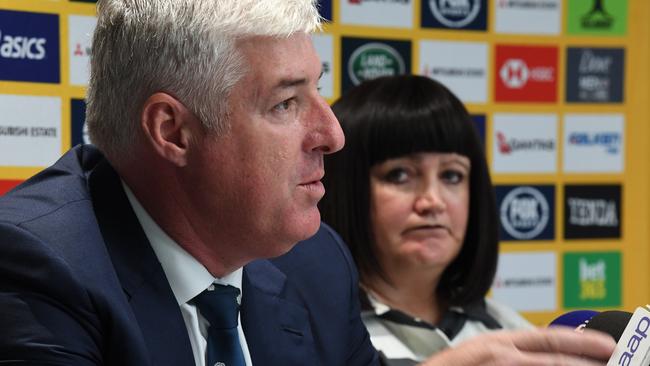
I am but one who would put my hand up to support a gifted young rugby player and like Mai, I wouldn’t care if I never met the player. Indeed, I would prefer that the player didn’t know.
But I would want some say over the criteria for choosing such a player. Tragically, there is nothing happening today which inspires givers to put their hand into their sporting pocket.
Identifying good athletes is not hard. But we have to resource and co-ordinate the investment in these young people.
This is transparently beyond the current administration.
We don’t need former or fallen bankers on the board. We need people who can identify talent, resource that talent and cultivate that talent; and persuade young people that we have a game that can reward them, as people and athletes, so long as, to quote the remarkable Ashleigh Barty, they offer the commitment to “give it a crack”.
We must start with a new and quality chairman and add a progressive, knowledgeable and industrious board.
There are many of us who stand ready to help to secure such appointments to the board.
Another of Saban’s observations rings true, “Are you looking to be a blessing, or are you looking to be blessed?”
Our game, believe me, is currently blessed with Australian playing and coaching talent.
But back to Rapp, who has allowed this new journeyman New South Wales coach, Rob Penney, to sign the Tongan Japanese sevens player, Siosifa Lisala.
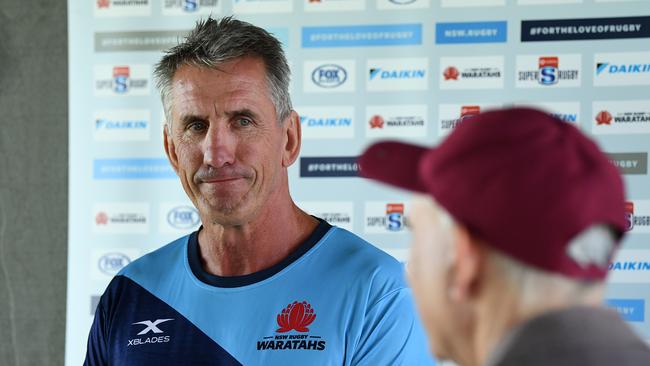
This person is a mercenary foreign player taking the spot of a young Aussie kid. Did Johnson sign off on this?
Daryl Gibson did the same thing when he became the Waratahs coach. He tried to rescue a young Kiwi, outside back, Zac Guildford. The experiment failed.
This simply turns ambitious young players away from the game.
Why did the Waratahs let the Wallaby winger, Taqele Naiyaravoro, go to England, where he is killing it for Northampton; but they signed this Japanese sevens player, who is not qualified to play for Australia.
We should be giving that chance to an Aussie kid; and we have plenty of them busting a gut to get a crack.
Further, we say we lack talented coaches and players at the highest level, yet we keep denying Aussies the chance to step up by continuing to embrace foreign players whom others do not want and foreign coaches who have achieved virtually nothing within the coaching ranks.
And here, now, we have the manifestation of this folly — Kiwi coaches who keep making short-term decisions that are not good for Australian rugby. Rapp, Johnson and Castle should be made to answer for this. I suspect they won’t be.
One other thing. You are never too young if you are good enough.
I have said it before and I will say it again. We have a stack of talent. The Australian Schools and Under-18s team rolled New Zealand last year and the Under-20s played in a World Cup final.
There were talented coaches behind these teams and talented players. They are overlooked while we sign a Japanese player and Kiwi coaches.
The rugby family must take up the challenge. We must expose the mediocre in our game and hopefully rally behind the changes that must be made. It is we, the members of the rugby family who have to be the catalyst for urgent change. And I mean now.
Hopefully readers, who may be inspired by some of what I have suggested, can become the blessing our game clearly needs.




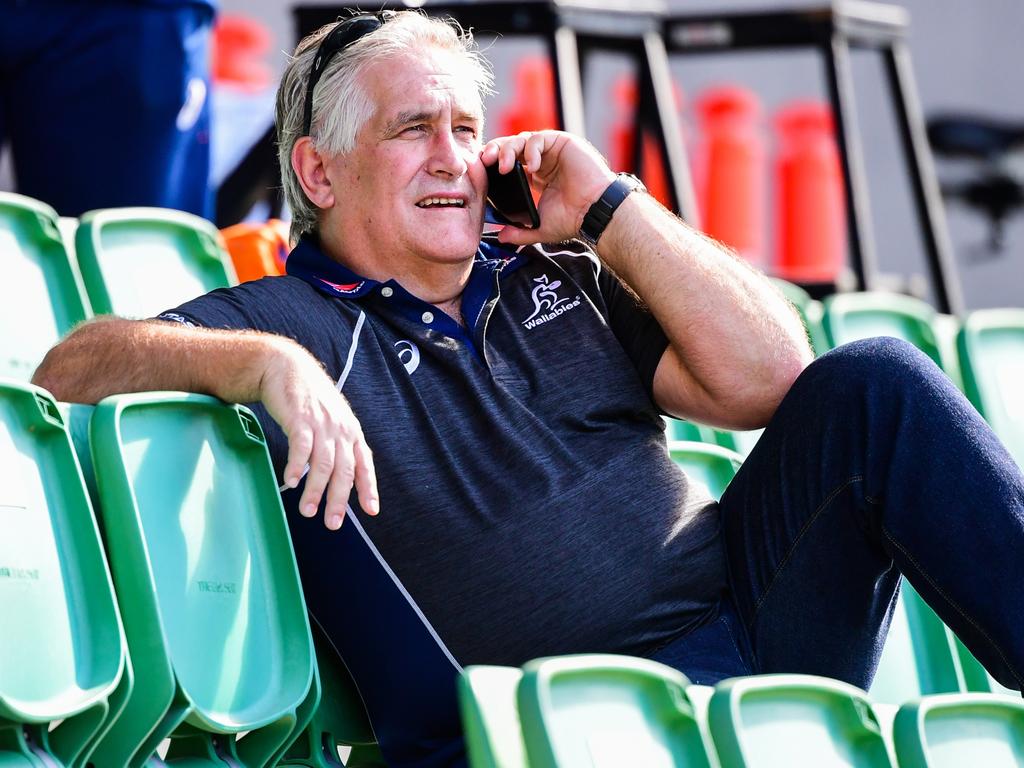
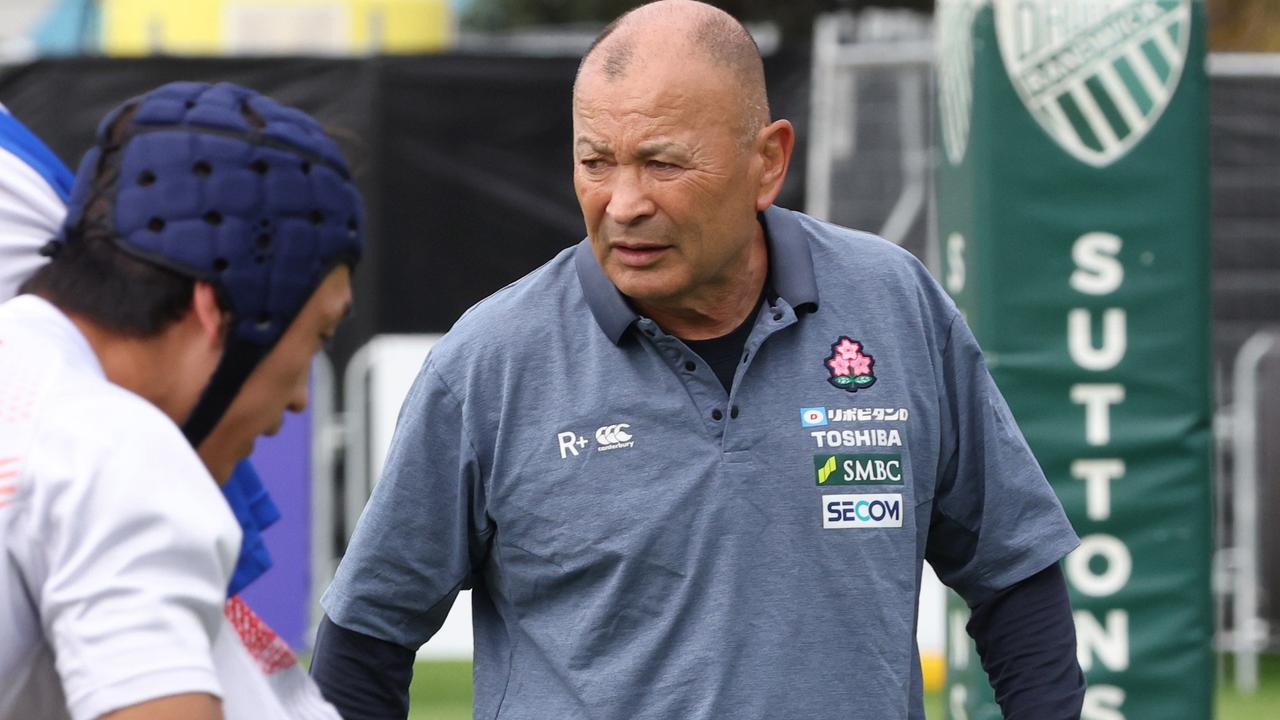
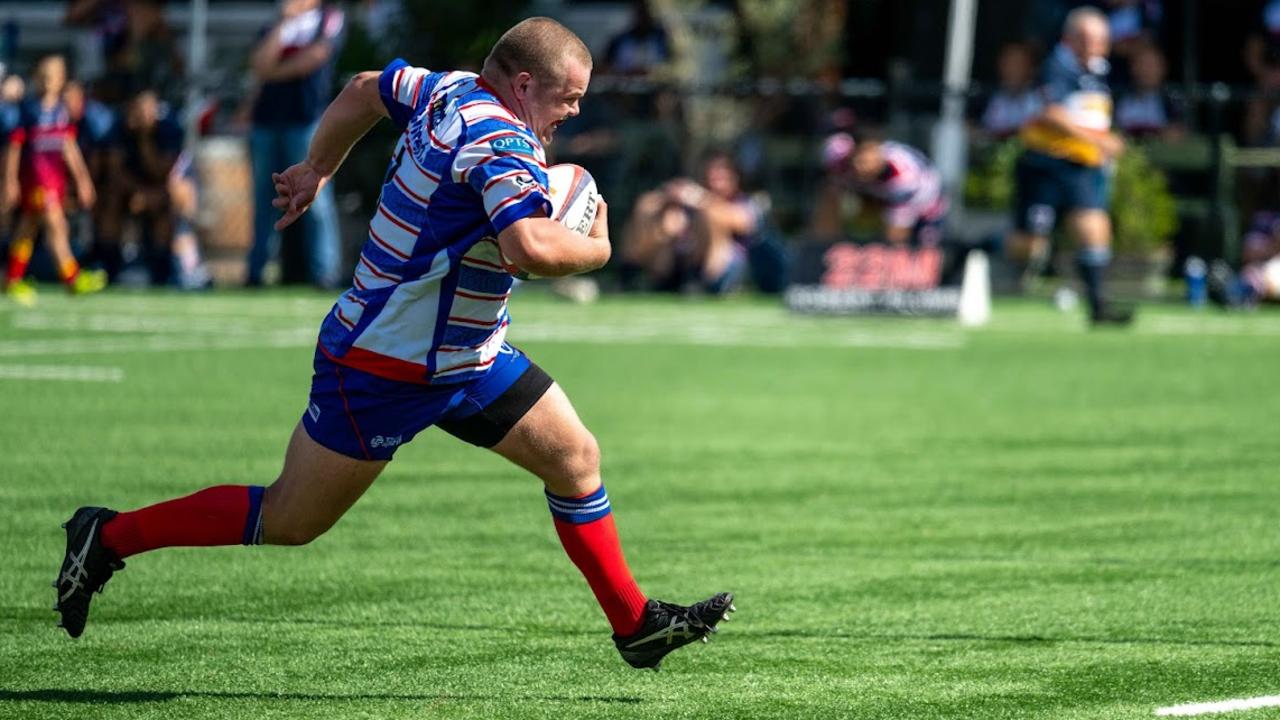
Notwithstanding the problems of the past, there is always a residual excitement about the beginning of a new season, in anything, whether it be in sport or simply the time of year.